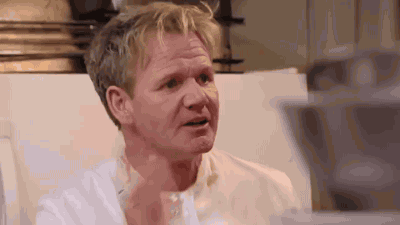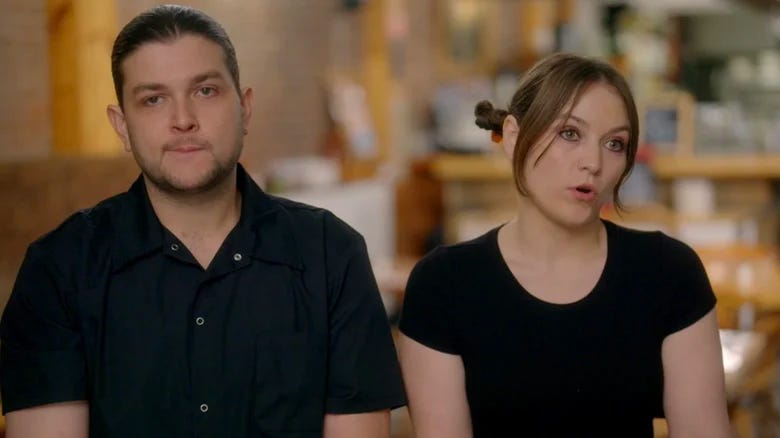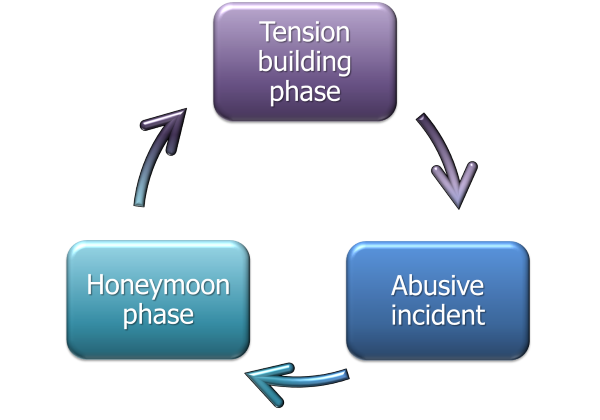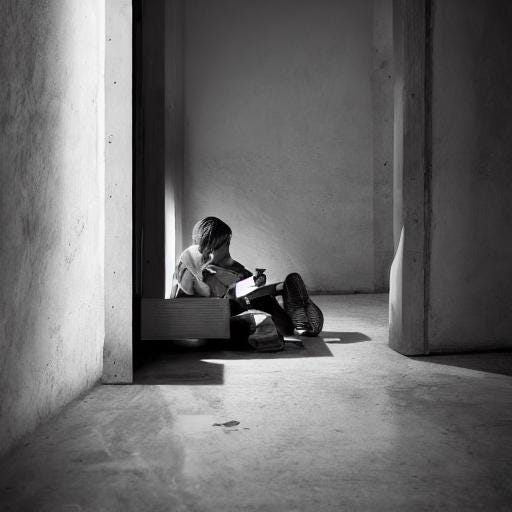In peak 2020 quarantine, my husband and I rediscovered Gordon Ramsay’s Kitchen Nightmares, an early aughts reality TV show. Watching Kitchen Nightmares throws me back in time - the low budget quality, the repetitive sound effects (such nostalgic affinity for this one) and Gordon’s high energy (like almost-coke-fueled) monologues about the eventual demise of the “rest-wrunt” unless drastic changes are made. My favorite one liner: “Honestly!? I’m depressed!”
Why I love Kitchen Nightmares
A singular component of Kitchen Nightmares keeps me hooked: when Gordon verbally eviscerates a man-baby chef/owner/manager in front of allll the staff that has yearned, but been petrified, to do the same.
I get a cathartic satisfaction from watching these small little men (usually men, but #notallmen) getting dethroned from their disgusting, vermin-filled kingdoms. The script plays out as follows: said man-babies make horrible business decisions and fuck over their employees. Enabling mothers, wives, adult children, or parents attempt to gently correct man-baby’s ways, but either don’t have or don’t feel any power to actually stand up to the man-baby themselves. Cue Gordon’s menacing wrinkles, quickfire wit, and thirst for crushing unaccountable men.
As a cis-woman whose had countless experiences in which cis-man-babies refuse to consider others’ perspectives, I relish these scenes. The emotional charge of watching Gordon bring his face almost erotically close the man-baby’s remains unmatched. Gordon is quick; he doesn’t let back-talk slide. He stands his ground, speaks the truth, fires biting retorts when needed. With no enablers in the ring, the man-baby and his paper thin ego crumble. Do I think Gordon is perfect?! Absolutely not - he’s often sexist, sometimes low-key racist, and unnecessarily mean. But damn, he’s fucking great at the breakdown before the buildup.
The episode in question: Love Bites
In 2023, Gordon rebooted Kitchen Nightmares, re-embarking on tearing down man-babies to the great relief of their co-restaurateurs, family, and staff. My husband and I recently settled in for another episode with fresh beers in hand and candles lit - but Love Bites left me with a pit in my stomach, and this time, it wasn’t the vermin-filled food.
Love Bites is especially hard to watch in a “this can’t get worse…wait, yes it can” way. The premise is this: Chris and Tess, a young fiancées, are running a failing restaurant called Love Bites. Chris is full time chef and Tess runs to front of house. When the episode begins, the viewer (most of reddit agrees with me) feels immediate disgust for the Chris. Chris claims he experiences “anxiety” (I’m sure he does, but anxiety falls FAR SHORT of the full picture), and his main symptom is DRY HEAVING over the food he’s about to serve to customers. Even more disgustingly, Chris constantly verbally degrades and devalues Tess: cursing her out, humiliating her in front of staff and customers, stonewalling her with silence, or throwing kitchen tools to frighten her. C In sum, Chris treats Tess like a stray dog he loves to hate. AND — while this is completely besides the point, the view can’t help but noticing that Chris’ hotness level is maybe a 2.5 out of 10, while Tess is at least a solid 8 or 9. Tess vacillates between valid (and not abusive) retorts, crying a lot, or just silently withstanding the abuse. They turn to Ramsay to save their failing, dysfunctional restaurant.
Remember how everything gets worse?
BUT WAIT, IT GETS WORSE! #1 - Tess shares in her interviews that when they first got together, they had “so much fun, and took all kinds of trips,” but now, the restaurant has consumed their whole lives/relationship, and any semblance of work-life balance has vanished.
BUT WAIT, IT GETS WORSE! #2 - Tess discloses that she has a serious gastro-intestinal condition that she’s dealt with entire life. She’s undergone THIRTY surgeries and has had all of her colon removed, working crazy long shifts with a colostomy bag in tow. I get cranky with a minor stomach ache and 8 hour shifts - I cannot comprehend what Spartan-level strength (or stress fumes) Tess relies on to make it through her physically grueling, abuse-filled workdays.
BUT WAIT, IT GETS WORSE! #3 - Tess tells us that both of them are in hundreds of thousands of dollars in debt, also revealing that the entire Love Bites business was Chris’ idea. She shares that she had her own separate career, but after seeing Chris fail spectacularly, AND at Chris’ urging, she quits her job to start working entirely at the restaurant.

BUT WAIT, IT GETS RIDICULOUSLY WORSE! #4 - Love Bites has two staff members who work entirely for free to “save the restaurant:” they happen to be both Chris’ and Tess’ moms. I’ll wait for the reader to pick their jaw up off the floor. Chris speaks to both of them in the same nasty, abusive way he speaks to Tess - and guess what they do?! They fawn and fuss over Chris, worry about his “anxiety,” and do nothing to stick up for Tess (or themselves). They rationalize that the restaurant will fail without their help, and Chris’ and Tess’ relationship will follow. To which, like Carrie Bradshaw, I couldn’t help but wonder: “Why not let this shit show burn to the ground, so Tess can rise like a phoenix from the flames?!”
Throughout the episode, my gut gnawed at me, signaling I wasn’t watching garden variety toxic masculinity, but demeaning abuse that put Tess and her health in danger. The only thing that sustained me through the nausea I felt watching said abuse on TV was the hope that Ramsay’s verbal takedown would reach epic levels. I fantasized Gordon would model taking-absolutely-no-shit, so that Tess would gather the courage to do the same. I’m sorry to write, none of my hopes nor fantasies materialized.
Gordon’s Faux Therapeutic (and faulty) Assessment
Ramsay declares that “one thing that’s clear..is that you two need a break. A break from the restaurant and a break from each other.” His assessment and plan prescribe the following:
Problem: Chris suffers from extreme anxiety, causing his emotions spill out as awful language onto Tess and both moms. Tess and is simply drained and exhausted. The moms are too overprotective of Chris.
Solution: Gordon sends Chris to one therapy session to learn coping skills for his anxiety. (Yes - ONE fucking session).
Solution: Gordon mandates that Tess stay home for few days while the renovations and re-opening reveal take place, while Chris learns the new menu and processes in the kitchen.
Solution: Ramsay advises both moms to stop overprotecting Chris and putting up with his bullshit, but their milquetoast responses and the way they meekly nod their heads at Ramsay indicate that nothing is really sinking in.
On the night of the re-opening, Tess returns to the restaurant as a guest, and the editors reallyyyyy milk Chris’ reaction as she walks through the door. The show paints a rom-com scene in which Chris re-falls in love with the sight of Tess. Tess, saintly in her beauty and acceptance, allows her wormy fiancée back with open arms. The message feels like, “Look what happens to marriages in the food industry when someone’s mental health suffers. Use therapy to heal the anxiety, and poof, your restaurant and relationship will thrive.”
Sure, this premise likely applies to countless couples in the food industry. But in this case, mental health treatment and the diagnosis of “anxiety” masks a destructive, abusive relationship, slyly upholding pillars of patriarchy from the shadows.
A Therapist’s (my) Assessment
As someone who has worked with survivors of IPV (intimate partner violence, which includes physical, sexual, financial, emotional abuse), my diagnostic picture of the couple looked wildly different than Ramsay’s. There are distinct, well-researched phases IPV (that happen across all types of relationships and between all genders) that aligned with Chris and Tess’ trajectory:
The Honeymoon Phase - The abusive partner showers the victim1 with lavish gifts, attention, and affection, which creates a false sense of trust and security. Sometimes the attention and grand gestures are so strong and frequent, they disorient the victim from their sense of reality (also known as love-bombing). This kind of attention can feel both very affirming and overwhelming; it’s exactly this dichotomy that throws the victim off balance.
Evidence: Tess describes in the beginning of the episode that when they initially got together, they were always going on trips and dinners out - Tess said the early stages were “super romantic.” She adds they jumped quickly from dating to a relationship, then six months into dating, got engaged and purchased the restaurant. While I don’t necessarily hear any love-bombing, the term “honeymoon phase” certainly applies.
Tension Building Phase - The abuser begins exerting power - AND MOST IMPORTANTLY, CONTROL - over the victim with criticism, emotional withdrawal, withholding attention/affection, and acting sullen. The victim, thrown off by the switch in their partner’s behavior, begins to believe the problem must be with themselves (especially if the victim is primed from early attachment trauma). Subconsciously, it can feel better to blame ourselves rather than losing trust in partner, because if the problem is with us, then it’s fixable, right? They try to be “better” (i.e. more compliant) or offer more support, so that the relationship will turn around. The victim also tends to walk on eggshells, not knowing what will set their partner off. Now, the abuser has firm control.
The show presents Chris’ abhorrent behavior as soley “stress” and “anger management issues” from becoming full-time chef after their original chef left. Abuse is NOT a stress or anger issue; I repeat - abuse centers on gaining power and control over another. Yes, Chris is angry an stressed, but the function of his language with Tess isn’t to vent or let off steam. Using signifying markers of verbal abuse (name calling, constant criticism, public humiliation, blaming Tess for his mistakes), his language and behavior serve to maintain not only his sense of power and control, but also power and control over Tess. He shouts insults like, “fuck you, you’re a fucking idiot, go fuck yourself” or “of course you don’t [have control], who would have fucking control over their domain of where they work?" Tess even says that customers often approach her in concern, asking if she’s ok after overhearing his shouting from their tables.
We also know that Tess has lost her own source of income, encouraged by Chris to quit her job to save the restaurant. This part is ESPECIALLY important, because it represents a drastic loss of her agency and increase in his control. Not only does Tess lose her own financial security, but she also loses relationships that she likely formed with co-workers. Her own life, independent of Chris, shrinks. Imagine your self worth draining while your bank account does the same; it would be near impossible not to depend on your partner, even through abuse.
Acute Explosion Phase - The abuse “blows up,” - escalating to worse than it ever was before, or creating crisis, like injury, excessive humiliations/degradation, or even loss of life. The victim responds any number of ways: protecting themselves, fighting back, trying to calm down or reason with their abuser, or trying to leave.
To my eyes, the episode didn’t show anything like that resembled this phase; Chris’ behavior remained a consistent horrific level the entire time. Tbh, thank fucking god they didn’t. Not only would such an inclusion be inhumane, Kitchen Nightmares could have had a lawsuit on their hands.
The Cycle Repeats - The abuser and victim return to the honeymoon phase. The abuser apologizes, rationalizes their actions, makes promises, seeks counseling (sounding familiar?!). The victim, who has little agency or felt self worth, experiences hope and relief, agreeing to stay. For many victims, this cycle repeats many times before they can finally escape.
How trauma, isolation, and shame keep the cycle in place
One very important clarifying point: the system of abuse in Love Bites isn’t only between both partners; it includes both moms. Each mom endures Chris’ verbal abuse, and also enable a cycle of abusing Tess; they prioritize avoiding divorce and “saving the restaurant” over Tess’ health and safety. In my own speculation (the show never brings up their dads), I’d bet that Chris’ abuse mirrors what he may have witnessed in his own father. Chris’ mom may accept his abuse, because her unprocessed trauma has normalized Chris’ behavior, in her mind and nervous system. I’d also wager that abuse may have played out between Tess’ parents, as Tess might be mirroring her mother’s role. Cue the phrase: intergenerational trauma.
The moms also play an important role as enablers, who abandon their own needs and agency to “save the restaurant.” By taking on a “rescuer” role, they likely find some sense of nobility and worth in how much they dedicate to their children’s business. Yet in their selfless (in the bad way!) pursuits, they strengthen the cycle abuse: by not naming what is happening and by modeling accepting abuse and forgoing self care.
Shame solidifies the cycle of abuse even further. Abuse instills shame, and shame propels us to hide, to shrink, to be invisible - and this invisibility means the victim suffers in unbearable aloneness. One of my therapist idols Esther Perel describes this concept perfectly: “When our traumatic experiences are hidden, which then of course intensifies the shame, it intensifies the isolation…” which brings more hiddenness, and so on.
My theoretical plan
In some alternate universe in which I was the therapist in Love Bites, I would have connected Tess to ongoing therapy, so she could begin to have some actual support: affirming her agency, self-efficacy and intuition, sharing the emotional burden of immensely painful trauma, and mitigating risk through safety planning. Esther Perel adds “the act of sharing [the trauma] is what takes away the hiddenness.” A therapist competent in working with IPV survivors would not try to convince Tess to leave (though every fiber in my being was yelling at the TV - “LEAVE HIMMMMM”), but would rather support Tess in connecting to her own intuition and worth. Then, when Tess would hopefully decide to leave in her own time, the therapist would safety plan as creatively and extensively as possible. Leaving an abusive partner and the following 18 months are the most dangerous times for survivors, according to the National Coalition Against Domestic Violence).
Despite all of shit I’ve written about Chris (which I firmly stand by), I don’t believe he’s beyond forgiveness or redemption, and he clearly needs therapy too. However, forgiveness or redemption can’t happen without repair, and repair can’t happen without accountability. Tess knows this in her bones; she declares in interviews, “I wanna hear, ‘I’m sorry.’” A one-off therapy session that allows Chris to justify his abuse with anxiety alone allows him to escape ANY accountability, which upholds patriarchy and its destruction.
You’ve read this far, let’s bring it home
I hear the skeptical reader challenge me, “Great plan, but you’re a therapist, not a restauranteur. This is reality TV. You’re expecting too much.” First, I’d affirm the skeptic with something like, “I appreciate your critical eye!” (I know, so therapist-y.) Then I’d explain that yes, this is reality TV, and reality TV reflects broader cultural narratives: stories we tell ourselves, and on deep, subconscious levels, believe to be true. It matters precisely because therapy was portrayed a solution for Chris, while Tess’ experience and needs are rendered invisible. Throughout Love Bites, Chris’ behavior is described in many ways: “a vortex of negativity” (Gordon), “unhealthy” (their moms), and even “vicious” (Chris himself). The word “abuse” is uttered exactly zero times.
Our Western culture has grown to not only accept therapy, but revere it as “expert,” as the arbiter of truth than can accurately describe reality. When therapists and the contexts in which they work are caring, competent, and ethical - it can live up to society’s image. But when oppressive systems collide with therapy in the context of reality TV, we must engage our inner skeptic to examine, “What’s really going on here?” or in this case, “What truth lies beneath the story were being told?”
Trauma informed therapy often utilizes the concept of the trauma triad: perpetrator, victim, and witness. A witness who DOES SOMETHING (like naming the victim’s experience, supporting - not rescuing- the victim) can drastically decrease the severity of PTSD symptoms in the aftermath of trauma. And on the opposite side of the same coin, a witness who does nothing intensifies the severity of both the trauma and its aftermath. In Love Bites, Ramsay, his team, and mental health treatment functioned as the latter - witnesses that obscured reality.
Kitchen Nightmares portrays a tale of the dangers of unaddressed anxiety, when what we’re really witnessing are the dangers of unaddressed abuse. We’re show that therapy helps both Chris, and by proxy, the relationship. Yet therapy actually functions as a smokescreen to hide and protect Chris and his abusive behavior, rendering Tess’ experience invisible. According to Kevin Richardson’s (philosophy professor at Duke) research, “erasure is more dangerous than exclusion. Oppression thrives best when it is invisible, and erasure, by its nature, renders oppressed identities invisible.”
Love Bites was not a restaurant worth saving, nor was Tess a person in need of saving. Tess deserved a witness to her trauma and tangible, immense support to regain her power - to resist and dismantle the patriarchal systems that rendered her experience invisible.
If you or someone you know is struggling in an abusive relationship, reach out to the National Domestic Violence Hotline.
For the sake of avoiding a debate re: semantics, I will use victim and survivor interchangeably.








Wow the depth on this one!! What a perfect and incredibly infuriating example ! 😤